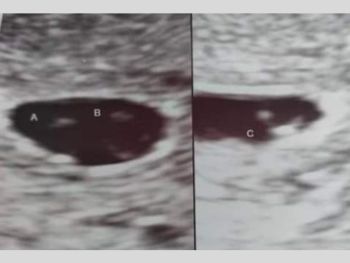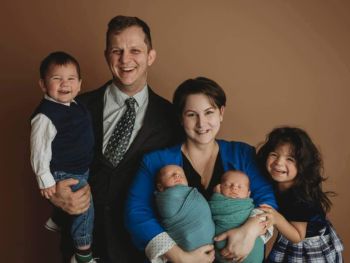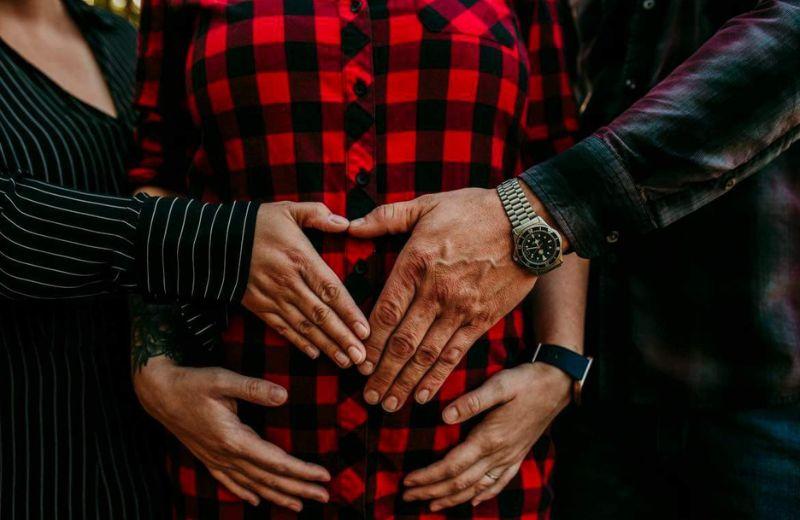*Content warning: This story talks about perinatal loss and may be difficult for some readers. As you read my story, take care of yourself. Seek out support as you need it.*
Intended parents moving through a surrogacy process can experience perinatal loss. Grieving the loss of one of my unborn, surrogate-carried triplets has been difficult for me to navigate. There have been so many new feelings and emotions to work through, and I’ve come to realize that not everyone close to me knows how to support grieving parents. I hope sharing a glimpse into my emotional journey can be helpful for other families navigating similar experiences.
Helpful and supportive comments
Knowing what to say to a grieving parent doesn’t always come easy. There’s no perfect response. The goal is to be present, compassionate, and gentle. Some of my friends and family members shared helpful comments like:
- “I’m so sorry you’re going through this. What do you need from me?”
- “I cannot imagine what you’re going through, but know that I’m here when you need me.”

These comments helped me recognize that there are people who genuinely want to help -- I just need to communicate what I need. I’m able to relax knowing that if I have a need in the future, there are safe people in my life that I can share it with. I trust they would be receptive to supporting me.
One friend shared with me their story of losing a baby. They helped me to understand that the grief and loss process is a journey, not a destination. This helpful framing allows me to accept that everyone copes differently. For some families, we may never arrive at closure, and that’s okay.
Harmful comments to avoid
Sometimes, friends and family may want to be supportive, but simply don’t know what to say. Despite their best efforts, they may say something hurtful, even if they didn’t mean to. Here are some examples of harmful comments to avoid saying to a grieving parent:
- “You still have twins that are doing okay.” This type of comment discounts the grief a parent feels for the baby who died. It confused me that some of my friends and family couldn’t understand why I was sad.
- “It was probably for the better” and “Could you imagine if you actually had three?” These comments made me feel terrible and caused fractures in my relationships. I felt unseen in their lack of understanding and compassion. I would always think to myself, “Yes, I can imagine, and I had hoped it would be that way.”
- “It wasn’t even your body that miscarried” and “Why are you still coping with the grief and loss?” Almost two years later, I still hear comments like these. They hurt on many levels, as they assume that non-carrying parents don’t feel loss, pain, or connection to their unborn babies. For me, navigating surrogacy was not a choice I wanted to make, but one I had to, as I cannot carry a child myself.
If you find yourself in a situation where you hear these types of comments, let people know they are hurtful. Growth takes place in discomfort, both for the grieving parent and the support person. Relationships can be strengthened through these difficult conversations.
Learning and healing

My journey through perinatal loss has helped me to learn a lot about myself. Some of my key learnings are:
- It’s important to tell people when their comments are hurtful. This lets them know the negative impact of their language. Hopefully, they will change their approach next time.
- What I’m experiencing may not be what another parent experiences. What’s most important is that we’re there for each other to move through these difficult journeys together.
- Sharing my journey with others is a helpful coping strategy as I continue to navigate my grief and loss. However, this is often easier to say than do!
Deepen your understanding about grief and loss of a baby
Grief and loss are complex and not linear. There are many resources out there to support learning in this difficult topic. Here are some to get you started:
- After the loss of your baby – BC Women’s Hospital + Health Centre
- Miscarriage, stillbirth, and loss of a baby – Northern Health (includes local grief support for families in Northern BC)
- MyGrief.ca – Canadian Virtual Hospice
- Podcast: Stillbirth happens – BC Women’s Hospital + Health Centre
If you or someone you know is struggling with perinatal loss, support is available. We encourage you to:
- Connect with your family doctor, nurse practitioner, or midwife
- Contact the Northern Health Primary and Community Care Virtual Clinic at 1-844-645-7811
- Call HealthLink BC at 8-1-1
- Visit your local health unit














Comments